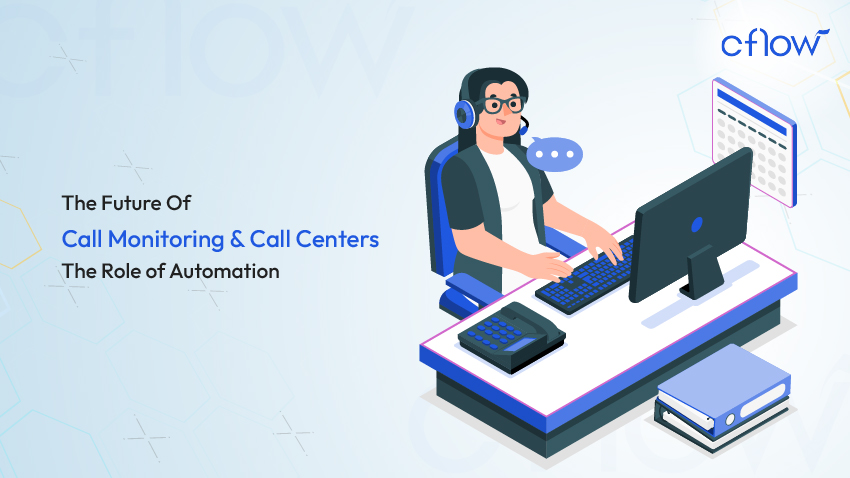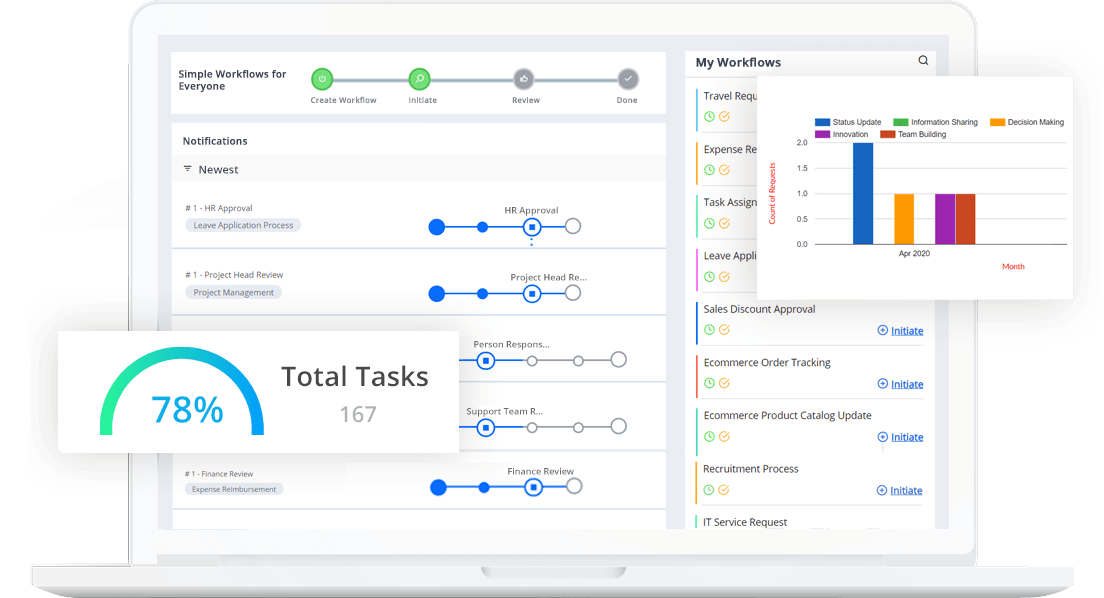Automation In the Future of Call Monitoring

Customer service, sales, and support teams are usually under much pressure. This pressure is greater than ever as more companies try to scale their activities. Automation is becoming widely adopted in various tasks, including call monitoring.
The increased pace of modern corporate life pushes companies to try new solutions. One main reason for this is the need for more precise customer support. Clients look for high-quality phone conversations, the heart of the modernized approach.
Automation in monitoring and scoring all calls changes how businesses can track and evaluate these important interactions. As we move toward an even more digitalized future, automation will likely play a pivotal role in how call centers operate.
A Blast From the Past: The Old Call Monitoring Methodology
Just a couple of years ago, most companies still relied mostly on manual techniques for monitoring call center activity. They recorded all conversations, which allowed managers or supervisors to listen to them afterward while grading agents based on company standards.
Sure, this approach was successful and widely used for many years. However, it also had many drawbacks. Listening, monitoring, and evaluating the calls took a lot of time. Moreover, a classic approach was often arbitrary and provided little information about overall performance. Last but not least, companies could only obtain a partial understanding of the overall performance of their customer support teams.
Then came the big savior—the digital era.
The rise of automation has started to shift the call monitoring landscape fundamentally. Modern technology does not stop revolutionizing. One of the main trends right now is employing software to handle, evaluate, and even score calls. This allows businesses to establish new avenues for in-depth analysis.
Today’s Automation In Modern Call Monitoring
In the US alone, call center employees shrank by over 300,000 between 2014 and 2023. While person-to-person customer service is declining, automation fills the void. Automated call forwarding, AI-based agents, and digital evaluation techniques are central to this.
However, automation is equally important in call monitoring. As client support becomes more and more personalized, managers and supervisors need to analyze carefully how calls are answered and handled to meet modern standards. Automation allows them to record more conversations, study them quicker, and instantly look for key performance indicators (KPIs).
But how are modern automation tools revolutionizing call monitoring? Let’s examine the main aspects.
-
Real-Time Data Collection and Analysis
Old-fashioned call monitoring postponed the identification of possible problems by examining recorded calls after the event. Luckily, this is no longer the case, as automation allows companies to record and analyze calls in real time.
Automation in call monitoring is getting particularly successful thanks to natural language processing (NLP) and voice recognition. These techniques are used to transcribe calls and extract beneficial data rapidly.
As a result, managers can evaluate agent performance immediately. Automated technologies mean no longer waiting for a monthly report or end-of-week assessment.
-
More Consistent Employee Scoring
Traditional call scoring relied heavily on supervisors’ subjective approach. Based on their prejudices, emotional state, or even the conversation’s setting, assessors were not doing a very fair job.
With automation, such unpredictability is a thing of the past.
Automated call monitoring ensures more consistency in scoring, which is now based entirely on the main KPIs. Assessing the same criteria for each call guarantees more dependable results for overall evaluation, whether it means checking whether the agents follow an agreed-upon script, offer on-point resolutions, or comply with the laws.
Consistent employee scoring gives managers a reliable picture of team performance, making assessment clearer and more unbiased.
-
Compliance Monitoring
Companies working in regulated industries—such as healthcare, banking, or telecommunications—must comply with the existing frameworks. Automated call monitoring strategies only make this task easier, identifying conversations, in which:
- The agent fails to follow the proper disclosure protocols.
- Private customer data is unfittingly exposed.
- The discussed topics go far beyond reliable issues.
Call center managers can now seamlessly ensure that each conversation meets legal requirements. They can set up systems to recognize compliance behaviors, phrases, and terms. As a result, companies can rest assured that their call center agents comply with industry-specific standards.
Staying compliant reduces the chance of expensive penalties or legal action against the company. Moreover, it also assures businesses that they are accomplishing their legal obligations.
The Future of Automated Call Monitoring
As sophisticated technologies enter the market, automation exceeds modern companies’ requirements. For example, AI call centers are becoming widely adopted, lowering the need to employ agents. Many organizations are turning to a cloud call center environment, which allows them to build a stable remote workforce.
Regardless of the direction that call centers choose in the future, automated call monitoring will remain the #1 challenge. However, we are convinced that the following trends should improve the overall quality of evaluation:
- Omnichannel Integrations: Integration with other systems is the bottom line for automation in the future. Call monitoring will become even more dependable as companies easily combine it with their current software, such as performance dashboards, helpdesk systems, and customer relationship management (CRM).
- Scaling Across Large Teams: Automated call monitoring allows owners to scale their companies up or down, even when employing the largest teams. Implementing cloud-based systems will allow owners to monitor calls from hundreds or thousands of agents effortlessly.
Automation in call centers will ensure that all agents, regardless of location, are exposed to the same degree of scrutiny and quality assurance. This trend will also have a noticeable effect on the customer experience. It guarantees a more personalized, precise, and quick service. Call monitoring automation eventually improves the quality of support by giving supervisors a better image of team performance and enhancing agent efficiency through real-time feedback.
Final Thoughts
There is no question that automation is the future of call monitoring. It is the key to quality in both agent performance supervision and responding to increasing customer needs. Automating call center operations is how businesses evaluate client interactions by streamlining the monitoring process, enhancing consistency, and offering real-time data.
In the next few years, we will see how modern call-monitoring solutions get more sophisticated. Technology develops further, uniting deep AI, machine learning, and progressive analytics tools. The future is brighter than ever. Get ready to handle the requirements of a rapidly shifting customer service industry by automating call monitoring today.






